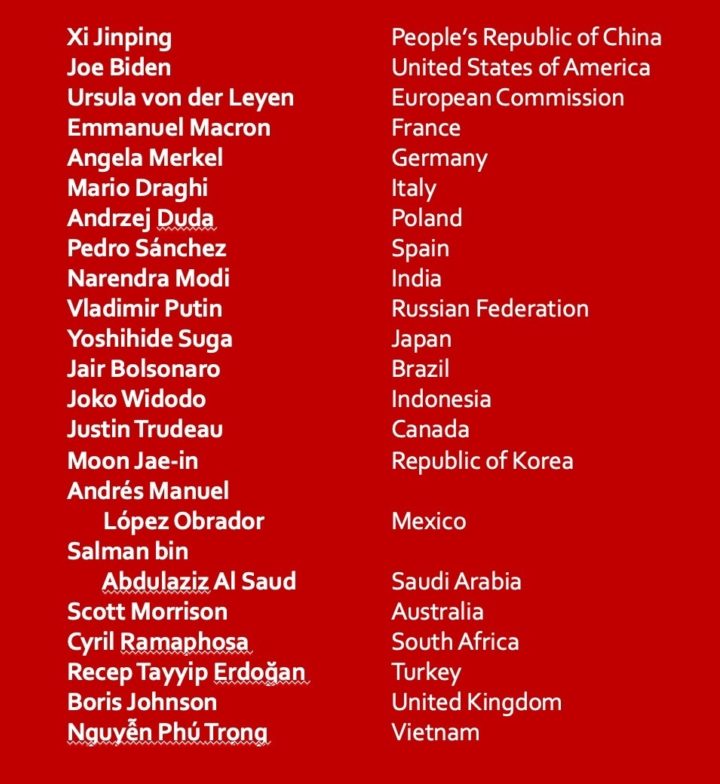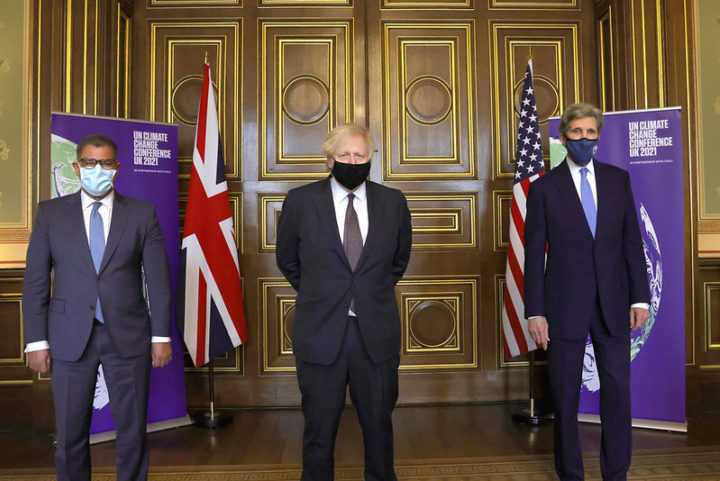US Climate Summit - what to expect
On Thursday this week, President Biden – just 93 days into his term of office – welcomes 40 heads of government to a Leaders’ Summit on Climate.

By Gareth Redmond-King
@gredmond76Share
Last updated:

On Thursday this week, President Biden – just 93 days into his term of office – welcomes 40 heads of government to his Leaders’ Summit on Climate. Biden announced the meeting just seven days after his inauguration, also the day on which he took the US back into the Paris Agreement. This, and actions since, all very much signal a US return to the world climate stage.
US LEADERSHIP
This matters for two reasons.
The first is that the US is second only to China in its annual greenhouse gas emissions. And whilst China emits twice as much as the US annually, the proportions are reversed in historic emissions. So, if we’re to have a hope of achieving the commitment made at Paris to keep warming to 1.5°C, then serious reductions are called for from the nation responsible for 13% of global emissions.
The second reason is leadership. In 2015, commitments from Barack Obama and Xi Jinping made ahead of the Paris meeting helped the French COP21 Presidency to land the historic Agreement. The authority that comes from serious climate action can be leveraged to persuade others to follow suit – especially action from the biggest emitting and most powerful economies.
So what should we expect from the summit?
STARTING PISTOL
We should not expect too much. It is not an end in and of itself. Rather it is a starting pistol for the six-month countdown to COP26 in Glasgow. That period will see several major meetings, including G7 leaders, finance Ministers, and Commonwealth heads of government in June, the UN General Assembly in September, and the G20 in October.

Each will help progress discussions towards November. And they will be supported by many, many bilateral negotiating meetings and calls behind closed doors. But none of this is plain-sailing – not least when you consider tensions between some leaders on this week’s guest list.
Brazil’s Jair Bolsonaro, China’s Xi Jinping and Russia’s Vladimir Putin have all been invited; all have had difficult relationships with the US of late. So, attendance, and the nature of commitment and co-operation, will be important indicators of whether tensions can be set aside in the interests of acting to keep warming to 1.5°C. Last week’s talks between US and China’s climate envoys bodes well for one of these key relationships. And that promises a fairer wind towards November’s climate meeting in Glasgow.
INCREASED AMBITION
The 1.5°C warming goal will be the main theme of the summit: action to keep it within reach, and the economic benefits of doing so. We can hope for, maybe even expect, some movement. The US is urging major emitters to commit at the summit to going further and faster on their Paris pledges. Setting the tone, the US will announce its own enhanced nationally determined contribution (NDC). Observers believe that they will commit to halve their 2005-level emissions by 2030. Obama’s commitment was 26-28% by 2025.
There are, inevitably, those urging the administration to go further. Climate Action Tracker suggest that a 1.5°C-consistent US pathway would require 57-63% cuts. However, Trump unsurprisingly made no advance on Obama’s commitment, unpicking climate action where he could. Which means 50% would arguably be a huge and important step, both in leadership and in real economy cuts.
With the US taking a lead, there is hope that Japan, South Korea and Canada might stump up stronger commitments this week too. It is not certain, though, that America yet wields the influence it needs after four years of absence. As it stands, India is not yet prepared to commit to a net-zero date, and China remains enigmatic on how it will deliver on its pledge to be carbon neutral by 2060.
FINANCE
No less crucial will be movement on climate finance. Back in 2009, rich countries promised that, by 2020, they would make $100bn available to poorer countries to support climate mitigation and adaptation. Four months into 2021, that commitment has not been met.
The presence at the summit of leaders from climate vulnerable nations including Bangladesh, the Marshall Islands, and Gabon, should remind wealthy nations of this. Nations most vulnerable to climate impacts are usually also contributing least to the problem. Most are among the world’s poorest nations, not only unable to afford climate, but also facing unprecedented economic damage wrought by covid.
If leaders from OECD countries do not step up both to meet the $100bn, and to offer debt relief and other fiscal space for the poorest nations, then trust will be lost. Conversely, if IMF expansion of special drawing rights can be delivered and built upon here, and by the G7 in June, then trust can be strengthened.

MOMENTUM TO COP26
Greater ambition, delivery on climate finance and debt, a re-assertion of global resolve to make covid recovery green; all can generate momentum towards the Glasgow climate summit in November.
The UK, as host of that meeting, has a formidable responsibility this year – both striking the diplomatic deals to open the door to success at COP26, and leading by example. By any measure, the UK is already a climate leader. But recent mis-steps, such as cutting overseas development aid and nearly green-lighting a new coal mine, put that in jeopardy.
COP26 will be the biggest international meeting ever hosted in the UK, and the stakes could scarcely be higher. Renewed US leadership is welcome and the UK will doubtless capitalise on it. But they need to commit the same degree of energy and drive to the task as Biden and Kerry are showing. COP President Designate, Alok Sharma, is doing so already. But he needs the support and drive of his senior Ministerial colleagues – not least the Prime Minister, and the Chancellor.
All eyes will be on Washington this week. But they will turn back to the UK Presidency very quickly. And that’s when the job begins in earnest.

Share